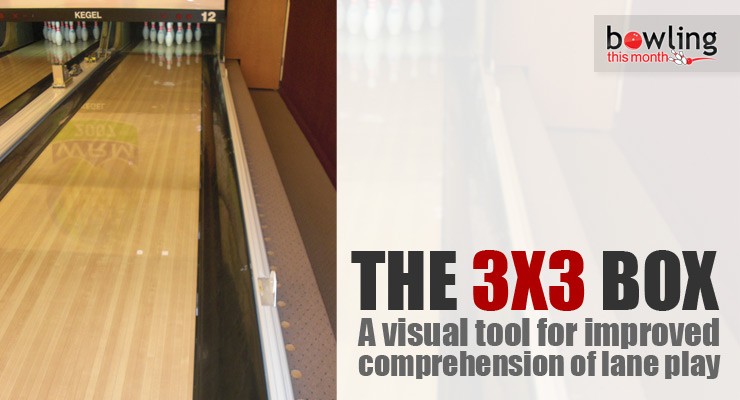Article Contents
- 1. Where the hypothetical meets the applied
- 2. Using the 3×3 box to play lanes and simulate lane transition
- 3. Visualize playing the fresh
- 4. Setting up and simulating transition
- 5. Constructing the 3×3 box
- 6. Conclusion and caveat
Note: This article is only available to Bowling This Month subscribers.
Improving lane play remains one of the biggest challenges in our sport. Lane surface materials vary widely and topographical differences lane-to-lane can make the same pattern play very differently in the same bowling center. Moreover, bowling has a variety of skill challenges due to the difficulty level of unique lane patterns. Each situation impacts ball motion differently.
Due to these challenges, lane play remains one of the weakest skill and knowledge sets for many bowlers. Lane play is literally a mystery for many. To excel, bowlers must be able to proactively deal with an invisible environment from the beginning of competition. As the tournament progresses and the conditions evolve, you must navigate the transition created from oil depletion and left behind by all bowlers who have bowled on the lanes prior to you.
To be successful, players need to strive to find a location in each pattern that provides the maximum margin of error. Specifically, if a bowler has recovery outside and hold inside, this will maximize the ability to score. Bowlers who can maintain this margin of error throughout a competition will perform well.
How does a bowler maintain the largest margin of error? It begins by being able to manipulate the lane pattern in practice in an area which, statistically speaking, is a likely location for the margin of error to exist. As the lane changes, each player needs to be able to observe how the ball reaction is changing in order to make wise and proactive moves and equipment changes to maintain the margin of error.
In this month’s issue of Slowinski At Large, I introduce readers to the 3×3 box, a visual training tool to improve lane play comprehension. The 3×3 box can be utilized in three important ways: (1) targeting practice; (2) a visual lane manipulation/ breakdown tool; (3) a visual lane transition and transition practice process tool. The 3×3 box is based on the idea of using what we know about lane pattern structure with more friction to the outside and more hold inside ...
Already a premium member? Click here to log in.


